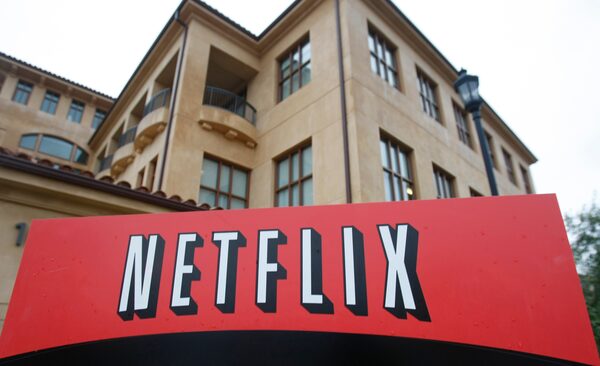
Netflix’s share of worldwide demand interest fell below 50 per cent for the first time in the second quarter of the year, research shows.Marcio Jose Sanchez/The Associated Press
The cracks are showing in Netflix’s worldwide dominance.
Netflix is still king of streaming video, but audiences are slowly shifting toward new rivals, namely the Walt Disney Company’s Disney+, according to research from Parrot Analytics.
Netflix’s share of worldwide demand interest – a measure, created by Parrot, of the popularity of its shows and a key barometer of how many new subscribers a streaming service is likely to attract – fell below 50 per cent for the first time in the second quarter of the year.
The company’s “lack of new hit original programming and the increased competition from other streamers is going to ultimately have a negative impact on subscriber growth and retention,” Parrot said in a news release before Netflix announced its quarterly earnings Tuesday.
Netflix said it had attracted 1.5 million new subscribers in the second quarter of the year, beating the low bar it had set when it told Wall Street that it anticipated adding just 1 million.
The company said it expected to add about 3.5 million new subscribers in the third quarter, lower than the approximately 5.5 million that investors were expecting. Netflix shares fell as much as 4% in after-hours trading Tuesday before bouncing back a little.
The company now has 209 million subscribers, but it lost 430,000 in the United States and Canada, its most lucrative region, over the period. It now has 73.9 million subscribers in that market, with about 66 million in the United States.
In a letter to shareholders, Netflix said that “COVID-related production delays in 2020 have led to a lighter first-half-of-2021 slate.”
Netflix relies on creating as many different shows and films for as many different audiences as possible, and the pandemic upset that formula, forcing the shutdown of productions around the world.
Traditional media players have started to consolidate, again, potentially setting off another race for talent, studio space and production resources. In May, Discovery announced that it would buy WarnerMedia from AT&T, creating the second-largest media giant, behind Disney and ahead of Netflix. Less than two weeks later, Amazon announced that it would buy Metro-Goldwyn-Mayer, home to the James Bond franchise, for $8.45-billion, a price many analysts considered rich.
“We don’t believe this consolidation has affected our growth much, if at all,” Netflix said, adding that it doesn’t see the need to pursue similarly large acquisitions to stay competitive.
Disney+ more than doubled its share of demand interest in the second quarter compared with a year ago, and Amazon Prime Video, AppleTV+ and HBO Max are also gaining, according to Parrot.
Even as newer entrants have chipped away at Netflix’s long-held grip, the company has downplayed competition concerns. In its letter to shareholders, it said the industry overall was “still very much in the early days” of the transition from traditional pay television to streaming.
“We are confident that we have a long runway for growth,” Netflix said. “As we improve our service, our goal is to continue to increase our share of screen time in the U.S. and around the world.”
In April, Reed Hastings, Netflix’s co-chief executive, dismissed the competition as pretenders to the Netflix throne. When investors asked him why the company had missed its expectations for adding new customers in the first quarter, he said, “Of course we’re wondering, ‘Well, wait a second, are we sure it’s not competition?’ "
“We really looked through all the data, looking at different regions where new competitors are launched, are not launched,” he continued. “And we just can’t see any difference in our relative growth in those regions, which is what gives us confidence.”
“We’ve been competing with Amazon Prime for 13 years, with Hulu for 14 years,” he added. “It’s always been very competitive with linear TV, too. So there’s no real change that we can detect in the competitive environment. It’s always been high and remains high.”
In other words: If Disney+ is hurting us, we haven’t seen it.
The argument that Netflix has been competing with regular television and other streamers for a long time overlooks the fact that new rivals like Disney+ and AppleTV+ are much cheaper than Netflix (and subscription television). And although those services produce far fewer originals than Netflix, they appear to be getting more bang for their buck.
In the second quarter, Disney+ got a big boost of demand interest from “The Falcon and the Winter Soldier,” a series based on the Marvel Cinematic Universe, which has thoroughly dominated the box office in recent years. “Loki,” another Marvel spinoff, also helped, according to Parrot.
Amazon Prime Video got a boost in the period with the launch of “Invincible,” an animated superhero series for adults. And AppleTV+ attracted new customers with a trio of originals: “Mosquito Coast,” a drama based on the 1981 novel; “For All Mankind,” a sci-fi series, and “Mythic Quest,” a comedy series that takes place in a game developer studio.
Speaking of, Netflix said this month that it planned to jump into video games. It has hired a gaming executive, Mike Verdu, formerly of Electronic Arts and Facebook, to oversee its development of new games. It’s a potentially significant move for the company, which hasn’t strayed far from its formula of television series and films.
The company called gaming a “new content category” and said it would be included as part of a subscribers’ existing plans at no extra cost. Games will first appear on its mobile app, an environment that already allows for interactivity. The vast majority of Netflix’s customers watch on big-screen televisions.
Be smart with your money. Get the latest investing insights delivered right to your inbox three times a week, with the Globe Investor newsletter. Sign up today.